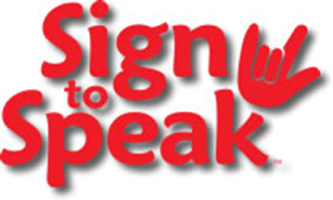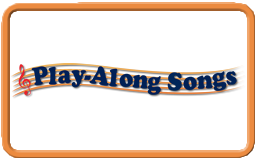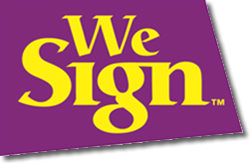
Benefits of ASL for Children
American Sign Language, ASL, offers many benefits to ALL children. Parents, teachers, and early childhood professionals can use ASL as a language tool that has proven to be a powerful to help children learn language, vocabulary, core educational concepts, and more. Here are 12 benefits your children will receive by learning ASL along with spoken English.
- ASL helps to fosters early language development especially with babies and toddlers who can use their hands to form words, long before they can speak.
- ASL stimulates brain development especially with babies and toddlers as they learn and remember words in a variety of ways that are stored in a variety of places in their brains. ASL and spoken English encourages learning verbally, visually – as they can see the sign, and physically – as their hands make the sign.
- ASL enhances and accelerates vocabulary and language development. Children greatly expand their knowledge, understanding, and use of words with ASL. This provides a strong reading readiness foundation for entering school.
- ASL develops fine and gross motor skills. Signing encourage the use of fine and gross motor skills to make signs for the letters of the alphabet, numbers, and words.
- ASL strengthens memory and recall of words. Learning words with ASL uses multiple learning styles, visual, verbal, and physical, at the same time that causes memorization of words in a variety of places in the brain providing them with stronger recall abilities.
- ASL develops confidence and self-esteem. Successful communication with others around them and enhanced understanding of words allows children to explore the world around them more confidently.
- ASL helps to develop focused learning. When teaching children sign language they need to be focused on the activity. When involved in signing it focuses their listening, watching, and communication skills.
- ASL provides a bonding activity. Parents, teachers, and early childhood professionals that incorporate signing and signed activities (songs, stories, games, etc.)
- <ASL for babies> link to: jump start babies chapter pdf offers early communication skills that allow babies to clearly express themselves with words before they can speak easing the "crying guessing game" and relieving parental frustrations.
- ASL for toddlers provides them with language skills to ease the "terrible two" tantrums while providing parents with effective silent behavior controls. ASL also offers toddlers a way to learn and use a large vocabulary of words to express themselves as they explore the world around them.
- ASL for preschoolers offers a fun and playful way to learn and remember a variety of core concepts - ABCs, Numbers, Colors, Rhymes, Animals, and more.
- ASL for elementary age children offers a fun and playful way to not only learn core concepts, lots of vocabulary words, and phonemic lessons, but also to become familiar with the 4th most common language in the U. S..


